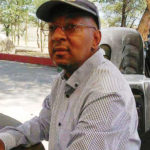 Yours Truly Ideologically-Eighth Instalment: Kae Matundu-Tjiparuro
Yours Truly Ideologically-Eighth Instalment: Kae Matundu-Tjiparuro
Yours Truly Ideologically, inaugurated with a broadside at local analysts for their hollow, empty and ideologically void verbiage on the management of state and/or governmental affairs, socio-economically, and also politically.
Observing that for most the analytical verbiage has never posited the system in its proper ideological context, either way be it socialist-oriented , capitalist or a mixture of the two, as Namibia’s is proffered to be. For these analysts, the bottom line has been seemingly the non-delivery of the system.
Ignoring the fundamental question: Deliver what, and who from what? Deliver the workers from the exploitative capitalist system inherited and bequeath them with a socialist economic system?
These questions, imperative to delivery and non-delivery of the system, seem to have been of no relevance at all to our analysts. Nor whether the system, capitalism, which has been in perpetuation since independence, was ever meant to deliver in the first place or not.
There cannot be any disagreement that what the current cohort of socio-economic and political elite inherited from colonialism, is purely a capitalist socio-economic system in its most vulgar mode.
A system that is still intact 30 years after independence, despite the posturing in the constitution of it being mixed economy, whatever mixed means in the case of Namibia. Does mixed means ‘socialism with a Namibian character” as the current Swapo Party President, Dr Hage Geingob, most recently put it at the opening of the party’s introspection indaba. With a purely capitalist system, which is what the Namibian economic system is in foundation? Is “socialism with a Namibian character” as yet to manifest, or even start to manifest itself, 30 years after independence?
Yet, this is the system our distinguished learned analysts ostensibly have been having under their analytical microscope. But their analyses, more than anything else, have been self-serving, intrinsic in themselves, as opposed to engendering change.
Perhaps true to the nature of these analysts themselves. Who are either conservative, pro status quo, to arrest all forms of change, or as much of it. These analysts see change as a “public” enemy.
This public in their narrow spectacles being none other than the elite. As Plato would say: “And are not things in the best condition least liable to change or alteration by something else?…Any change must be for the worse.” This school of analysts heaps tons of praises on the status quo and on tradition.
Then you have the liberal frame. That has been associated with the emergence of capitalism as an antidote to the vagaries, vulgarism and avarice of capitalism. Unlike the conservative school, it is not for the status quo but for social engineering. Piecemeal change. One thing which should not change according to this school of thought is the institution of property. An aspect an independent Namibia has been beholden to through a constitutional provision, thanks to the shenanigans of the then Western Contact Group comprised of France, the United Kingdom, United States of America, West Germany and Canada.
Then there is the radical frame, the Marxist frame. Which postulates that society is divided into classes, with the dominant view of how these classes are defined, this being their relations to the means of production.
Meaning the division of society into classes is a direct result of private property. The solution here is not social engineering ala Liberalism but the pulling down of the whole socio-economic, cultural-politico order. Hence the essence of Second Phase of the African (Namibian) Revolution. This breed of analysts, seems in Namibia a rarity or at best an endangered specie.
Dr Geingob recently alluded to, Economic Emancipation. “The first phase of our liberation struggle, that of political independence, has been completed. The next phase, that of nation-building, reconciliation, economic reconstruction and development, has just started. Like the former, this phase is indeed as formidable as it is challenging,” reads a quote from the Founding President, Dr Sam Nujoma, in 1990, perhaps charting the course of this said Economic Emancipation just after independence. This underlines ala Dr Kenneth Goabamang Koma, that indeed there is a Second Phase to the African (Namibian) Revolution. Late Dr Koma, an African ideologue and revolutionary from Botswana, has penned a booklet titled: The Second Phase of the African Revolution Has Now Begun.
The essence of the second struggle, which is economic, has been resonating in many of the political speeches of Namibian leaders, albeit the ideological content thereof has not been clear. Thus it has been inexplicable how our learned analysts not been able during this journey, especially since independence, venture analysis of why keeping the very system that was the target of the first phase of the Namibian Revolution, only to then have any expectations from same in terms of delivery.
The capitalist system Namibia inherited, is rotten to the core and thus untenable. Accordingly, who drives it does not matter. Capitalism in Namibia cannot have a better face, because those at the helm of the political system were yesterday’s liberators, nationalists, patriots or freedom fighters. Unless our analysts are would-be accomplices in the continued perpetuation of this system. And they surely cannot and do not have any moral high ground to hold politicians accountable for non-delivery. As Karl Marx would have it, philosophers had tried to come to terms with the world, whereas the endeavour should have been to change it!



